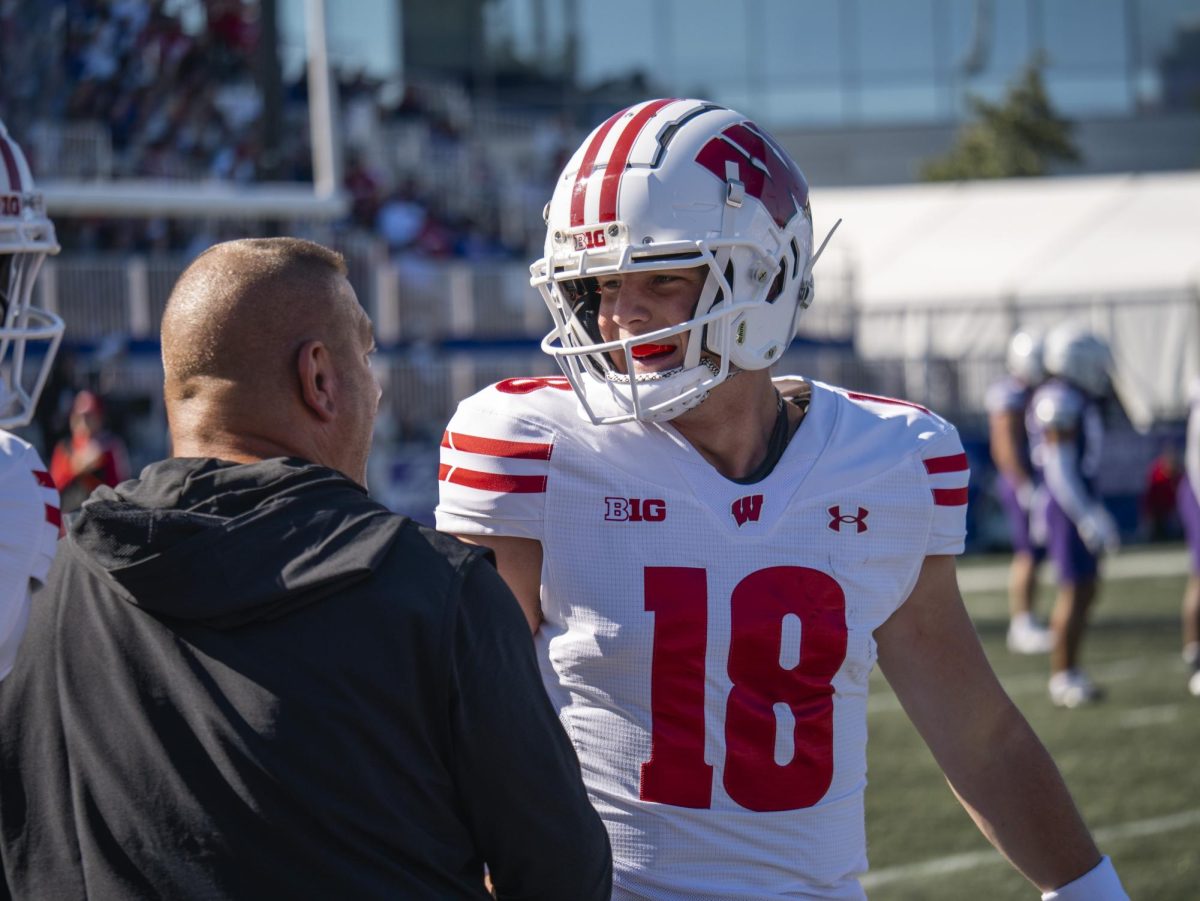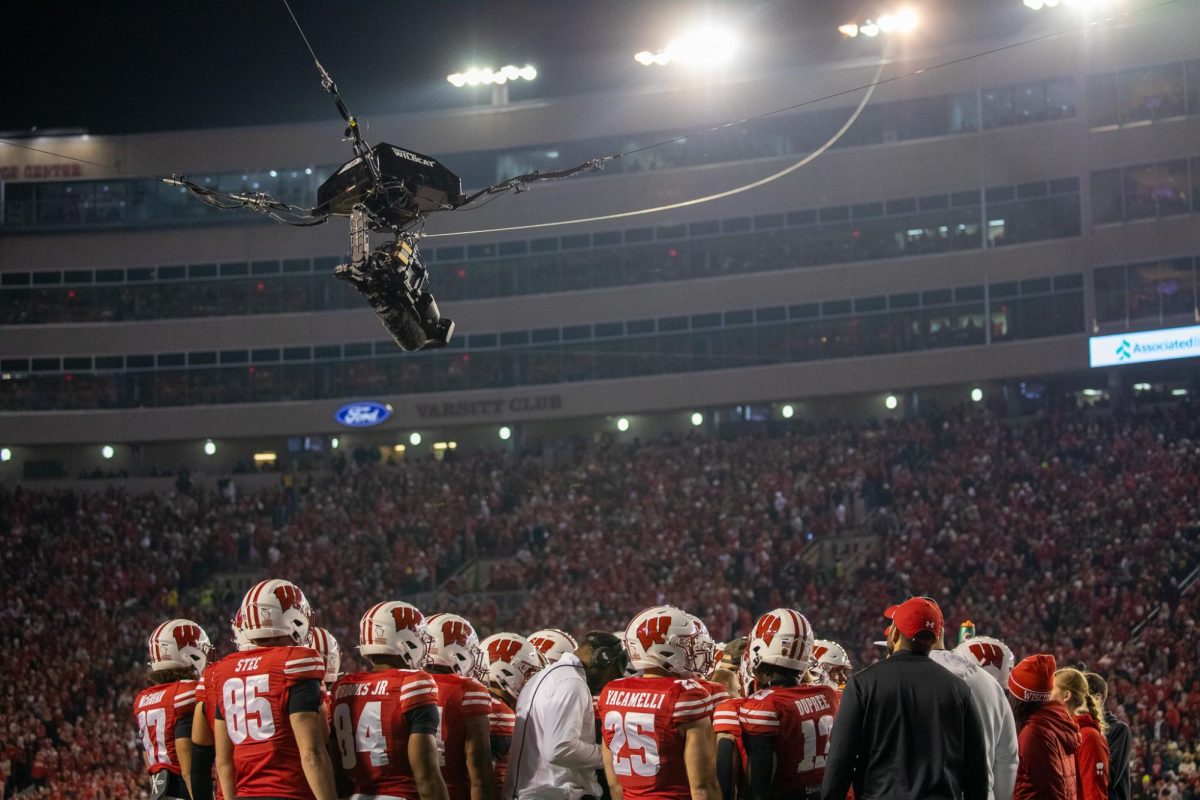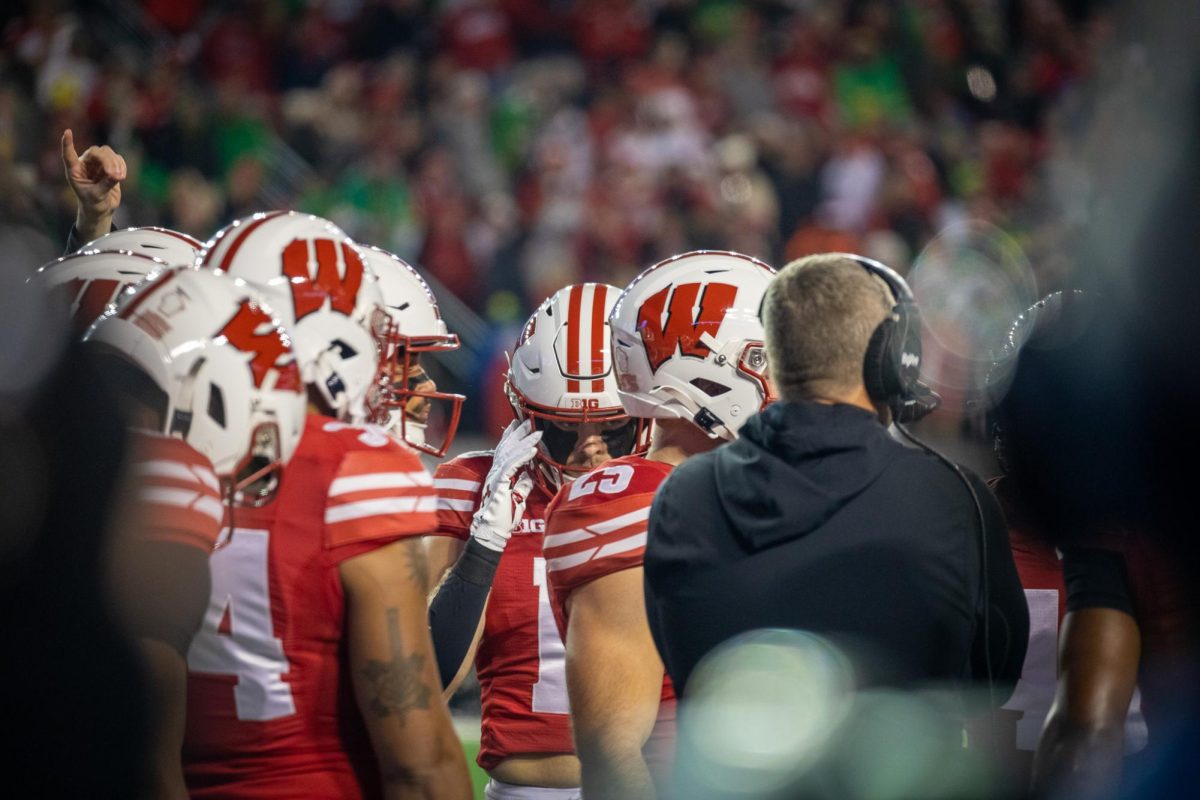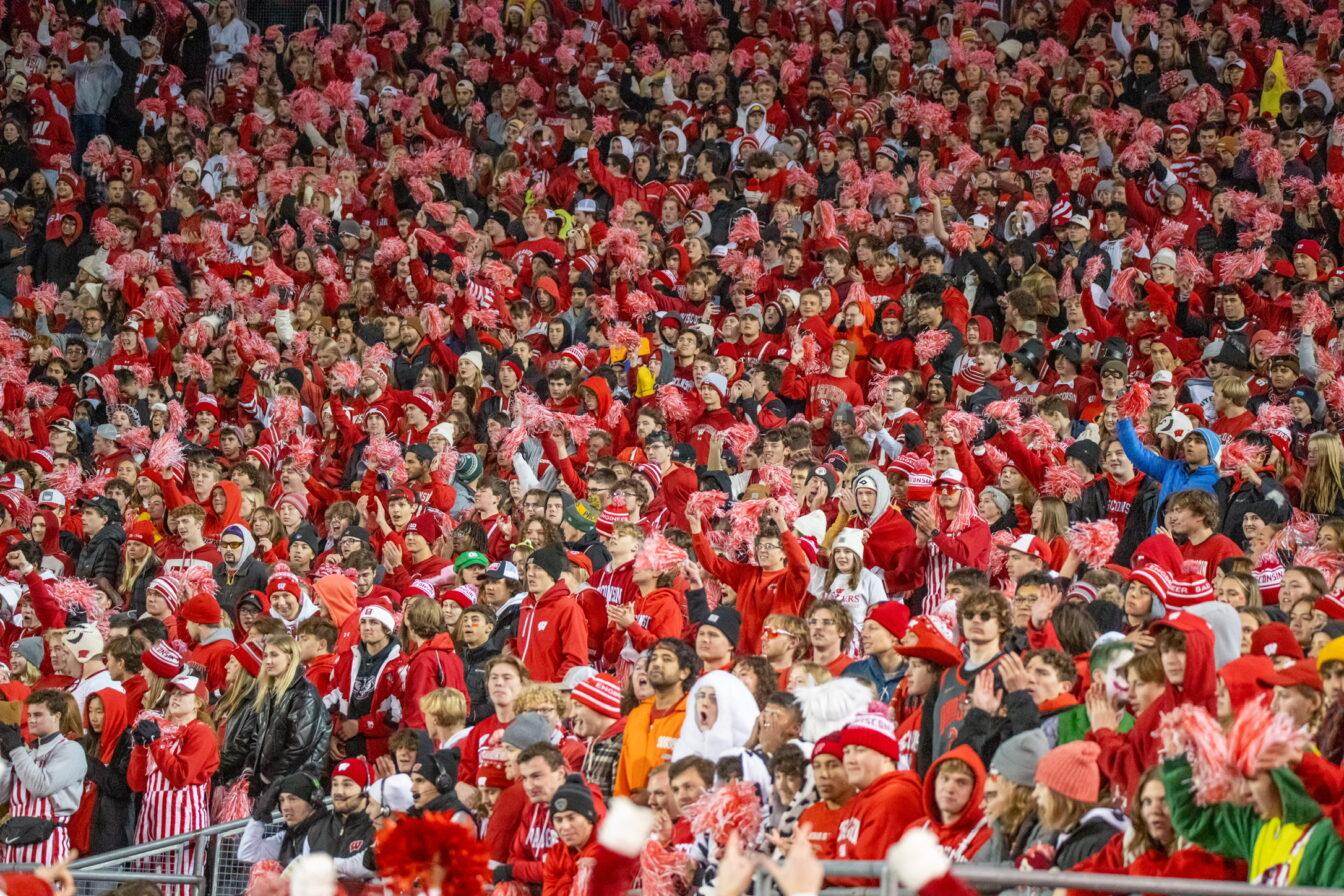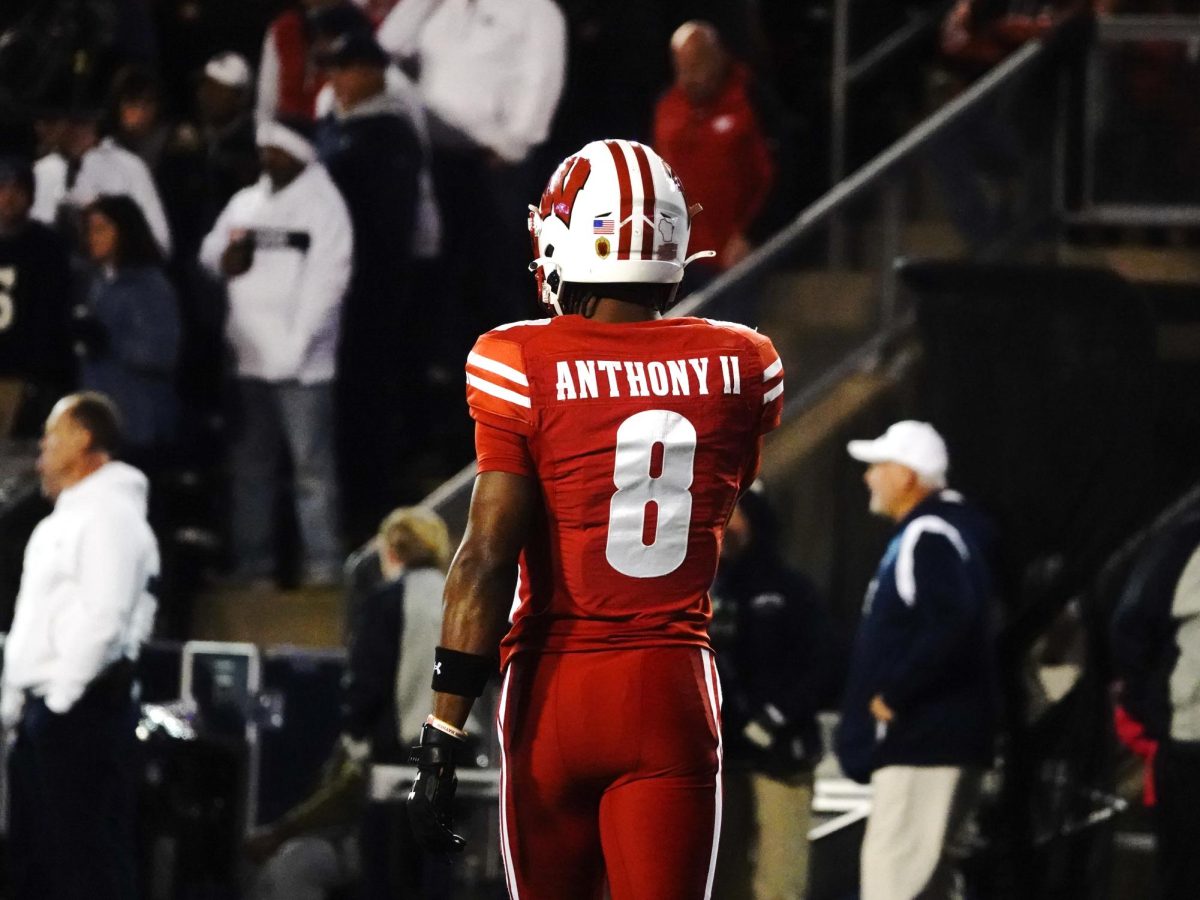EAST LANSING, Mich. – It was third-and-nine, Michigan State was at its own 17-yard line, early in the fourth quarter. Spartan quarterback Kirk Cousins completed a 12-yard pass to a wide open Mark Dell for a first down.
At the time, Wisconsin was down 27-24, fresh off an efficient scoring drive to open the quarter. UW had finally found some momentum and needed the ball back to avoid an upset on the road.
Two plays later and it was third-and-11 on the MSU 28. A stop here gives the Badgers ample time to at drive the field. Wisconsin used its 3-3-5 Badger package to bring extra pressure. Cousins slung a screen to running back Larry Caper, who gained 35 yards on the play.
Now it’s first-and-10 from the UW 37. Stopping the Spartans is becoming more urgent, because with the clock winding down, a touchdown means a 10-point lead that might be insurmountable.
It’s like Luke Skywalker versus the Death Star. But this time, those torpedoes don’t hit in time.
MSU would convert on three of four third down plays on that final drive, and convert on fourth-and-goal for the game-clinching touchdown in the 34-24 UW loss.
For the game, the Spartans were 9-of-18 on third-down conversions. The Badgers finished a miserable 3-for-11.
“Third down is always a big play. First and second down are the most important to get to third-and-long,” strong safety Jay Valai said. “Michigan State, they executed well and we didn’t execute. It’s all on the players. We have to pick it up.”
“Just, we weren’t executing,” receiver Nick Toon said. “If you can’t execute on third downs, it really makes it hard to win games.”
Michigan State gained 157 yards on third-down plays, and that’s after subtracting 12 yards on a third-quarter sack of Cousins. The Spartans scored two of their touchdowns on third down and picked up positive yardage short of a first down on two drives that ended in field goals. Aside from two interceptions, Cousins was 10-for-10 on third-down passing with two touchdowns, though one completion resulted in a lost fumble.
Wisconsin had 71 yards on its third-down plays and Scott Tolzien threw incomplete passes on five of UW’s attempted conversions. Often Tolzien didn’t have time to find his receivers, due to an effective MSU pass rush.
“They were blitzing on third down a lot, which seemed to be pretty effective,” left guard John Moffitt said.
The lack of execution on third down was uncharacteristic of a team that converted 25 of 47 chances entering the game. On the defensive side, the Badgers had allowed just 14 of 51 chances against them to be converted.
None however, might have been bigger than the Caper screen, which put Michigan State in the driver’s seat for the rest of the game.
“I think the guy that was supposed to be covering [Caper] read blitz because of the way the protection went, so… give them credit, it was a change-up off of what they had done on that play,” UW head coach Bret Bielema said.
Despite the fact all three of Michigan State’s turnovers came on third down, the Spartans were able to find enough success in their other third-down chances that the two interceptions and fumble didn’t cost them the game.
Momentum, rhythm hard to come by
While Wisconsin allowed itself to be gouged on third downs, the Badgers gave themselves a few chances to get back in the game.
In the third quarter, Michigan State had a first-and-goal from the 7-yard line. Spartans running back Le’Veon Bell got the ball to the 1-yard line on third down and MSU decided to go for it on fourth down. Bell was stuffed by J.J. Watt and Culmer St. Jean, and the Badgers took over on downs.
UW couldn’t do anything with the ensuing possession however, going three and out. Michigan State would take over at mid-field after a Brad Nortman punt and drive the ball back down for a touchdown and a 27-17 lead.
Despite the perceived change in momentum, there was nothing to show for the goal-line stand but time off the clock.
Down 20-10 at half, a largely ineffective UW offense dug a hole it couldn’t climb out of.
“I think just the slow start in the first half,” Moffitt said. “I thought the second half we were finally getting things moving, but it was just too little too late.”
After an uncharacteristically weak first drive, Wisconsin was able to take a 10-3 lead after an Antonio Fenelus interception that led to an eventual Badger touchdown and a forced fumble that led to a field goal.
Penalties on the ensuing kickoff would turn the tide back in favor of the Spartans and a 74-yard punt return by Keshawn Martin would give MSU a control of the game it wouldn’t relinquish.
A second interception after that punt return couldn’t help the Badgers either.
“[The defense] got us the ball a few times in the first half and we need to do more with that,” Moffitt said.
Although the Badgers were able to force a MSU punt to start the third quarter and respond with a touchdown drive, the rhythm was too hard to come by consistently.
“I think early we just kind of started slow. I think that was why we weren’t able to really capitalize as much as we could,” tight end Lance Kendricks said.
Consistency on both sides of the ball was simply lacking for the Badgers.
“I felt a rhythm on that last touchdown drive,” Moffitt said. “I even felt a rhythm when we went up 7-3, but it wasn’t consistent and I think that’s the key to offense, a consistent rolling-down-the-hill style.”
“That first touchdown in the second half was definitely a momentum-builder, St. Jean said. “Defense needed to come out and execute, we got the first three-and-out and then we just needed to do it one more time and I feel like our offense would have kept on rolling.”



